Even as a little girl walking to school down the road from her house, Aiia Maasarwe shone a little brighter than everyone else.
Neighbours who would see her around her home town of Baqa al-Gharibyye, a Muslim-majority town in northern Israel, said she always had a smile on her face.
No picture exists of Aiia, they say, where she is not smiling, or pulling a funny face.
All the kids in this prosperous, Arabic-speaking town learned Hebrew and English early, but Aiia was chattering away in Hebrew by the age of five, and stringing words together in English by the time she was seven.
Her Chinese-language skills came in her teens, after her dad Saeed started a business in China.
“Aiia was the pride of our village,’’ says Jamal El-Khan, who taught Aiia and her sisters Arabic for three years at the local school.
“She was the first to speak Chinese.
“The sisters are friends of my daughter, she (Aiia) grew up in my house. “She was an excellent student and a sweet girl.’’
Jamal struggles to comprehend that his former student is dead, her life taken 10 days ago in Melbourne as she continued to study the languages she loved at a university far from home.
“Her father helped her a lot,’’ he says. “She went away to study.
“Instead of coming back with her diplomas, she is coming back in a casket.
“I woke up four in the morning and made a bitter coffee, because it’s a bitter day.’’
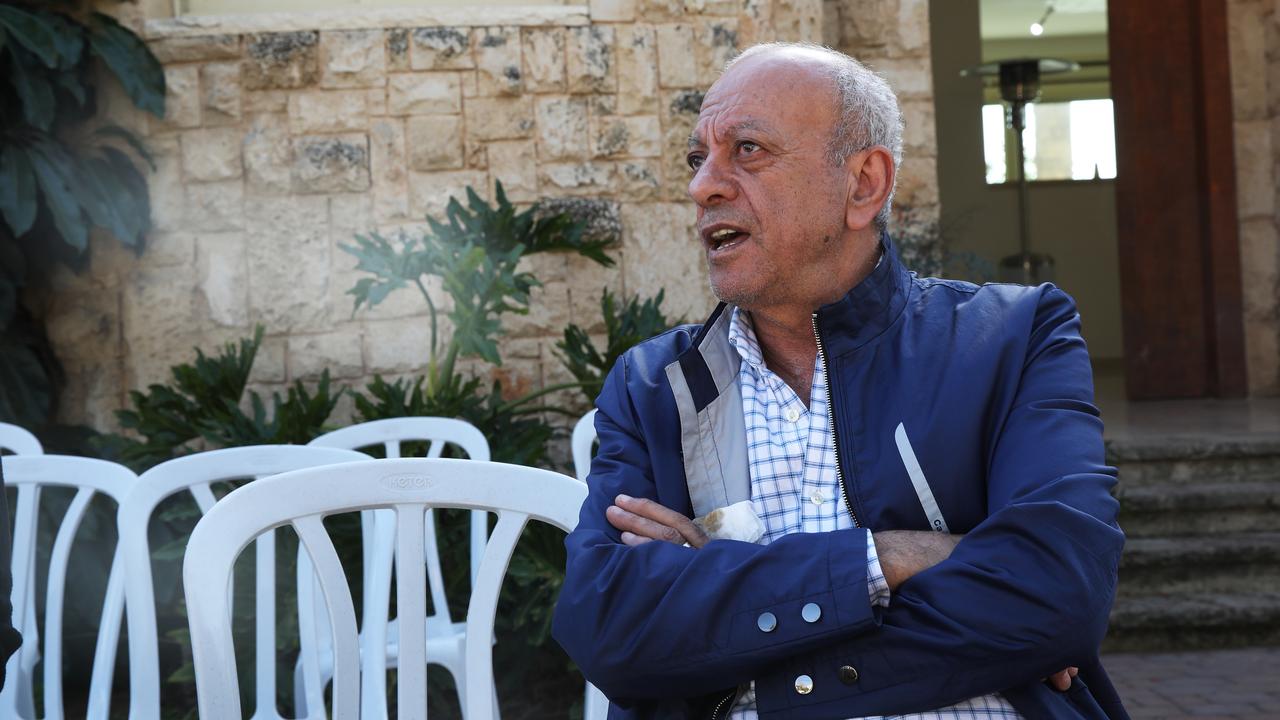
FAMILY TIES
Around 40,000 people live in Baqa al-Gharibyye, but the locals still call it a village.
The fourth-biggest family in the village is the Maasarwe family. The family bonds are tight.
Saeed Maasarwe has three brothers and four sisters. Three of his sisters married three brothers from another neighbouring family.
Saeed’s wife Khitam has 12 brothers and sisters.
After they married, Saeed and Khitam had daughters, first Noor, then Aiia, then Roba then Lena, less than eight years separating all four girls.
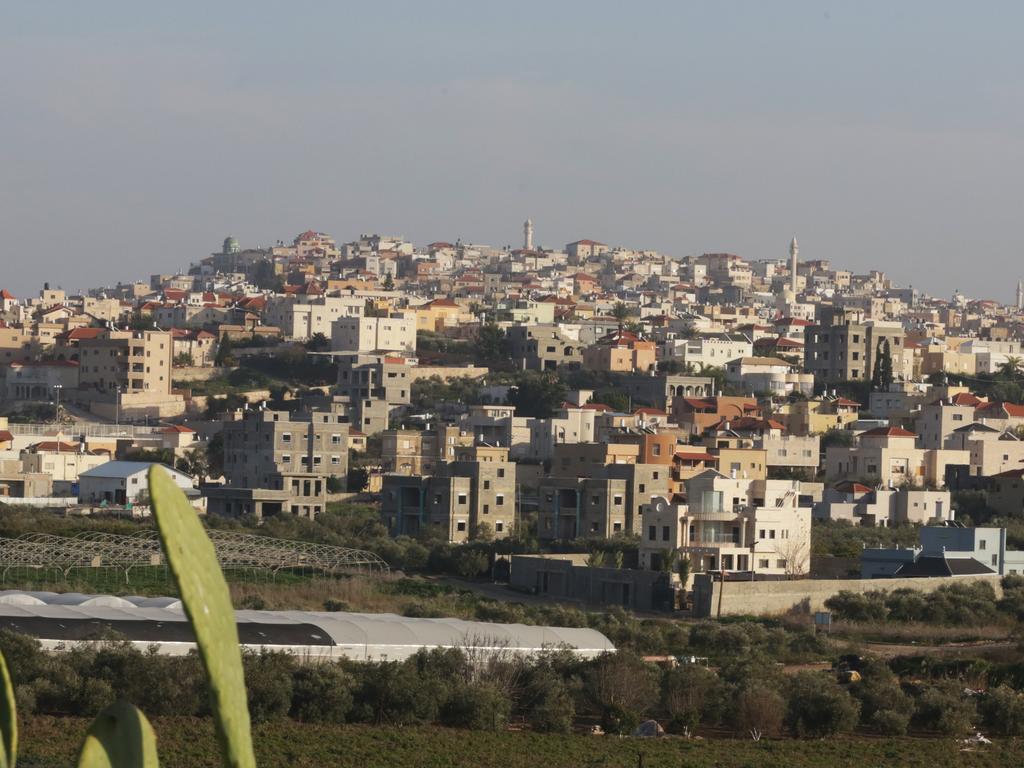
“Women are a blessing in our culture,’’ Saeed tells News Corp Australia.
Others in the village saw the girls around town, running between the houses the family occupy along several streets, and heading to the local school down the hill.
Four beautiful girls with thick, curly hair, they grew into beautiful young women with the same curls and quick smiles.
“The beautiful on the outside is good, but the beautiful on the inside matter more,’’ Saeed says. “The heart, the humanity, to be simple, I tried to teach them.’’
The Maasarwes were businessmen, and Saeed made a success of importing furniture from China into Israel.
He started travelling and basing himself in China about 15 years ago, and Khitam and the girls would visit when they could, spending the summer holidays of July and August with him every year.
Devout Muslims, Saeed and Khitam have both performed the Hajj, but raised their girls in a progressive household. The Maasarwe girls followed their faith, but were allowed to choose how they would practise it.
Aiia and her sisters didn’t cover their hair.

WORLDLY EXCITEMENT
They travelled independently of their father, sometimes on their own, all across the world, often to visit their beloved dad.
Aiia’s uncle Abed Ali Kattani, a brother to Khitam, remembers accompanying Aiia and her sisters as far as Amman in Jordan, where they would then get onto a flight to Qatar alone, then on to Hong Kong to see their Baba, the Arabic word for father, that they called Saeed.
“It’s unusual for girls to go study abroad,’’ Abed says.
“They would fly alone.
“In the airport when they were younger they would walk four of them in a line holding each other’s hands.
“The big ones Noor and Aiia were on the outside and the little ones in the middle.
“You won’t find many Arabic girls flying alone around the world.
“They are like actors, they would go to a shop in China and ask something in English.
“The Chinese would talk about them and then, especially Aiia loved to, suddenly say something in Chinese and say ‘I understood everything you said’.
“They (the Chinese people) didn’t expect four girls to speak Chinese. Everyone always wanted to take a photo with them in China.’’
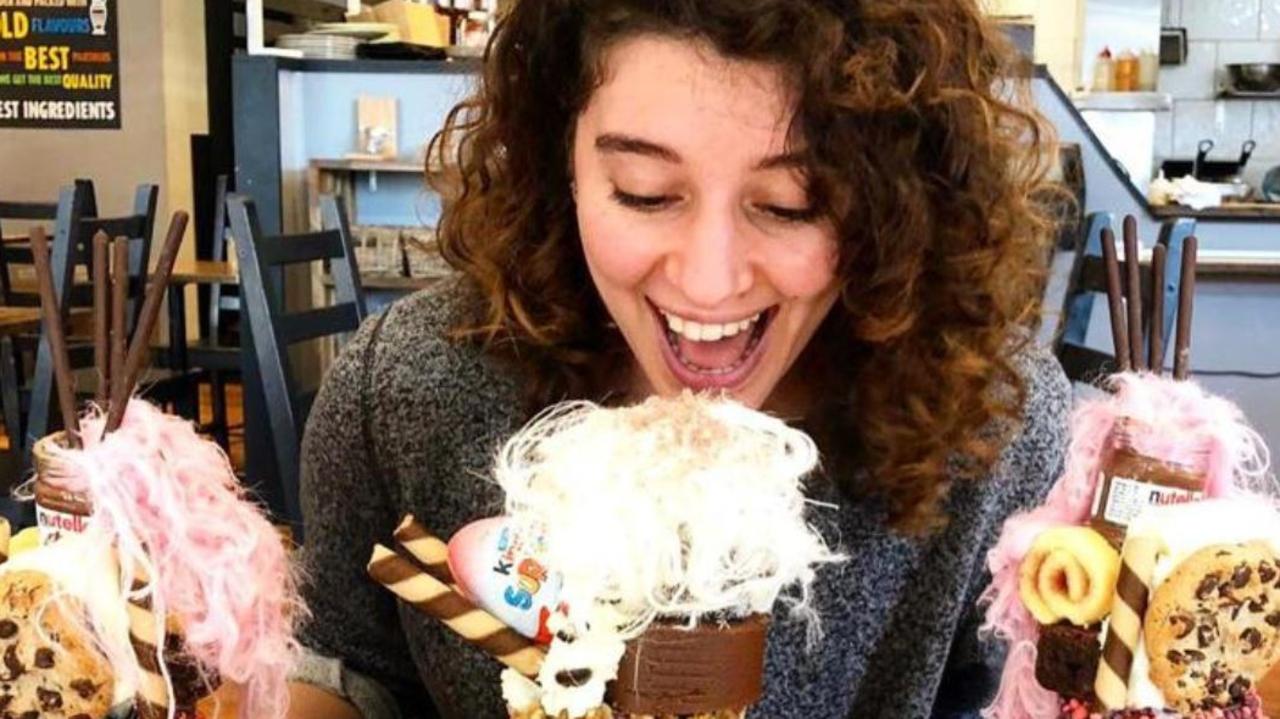
THIRST FOR LIFE
Saeed remembers being outnumbered by all the women and girls in his house, and how the girls would talk in code, known only to the sisters.
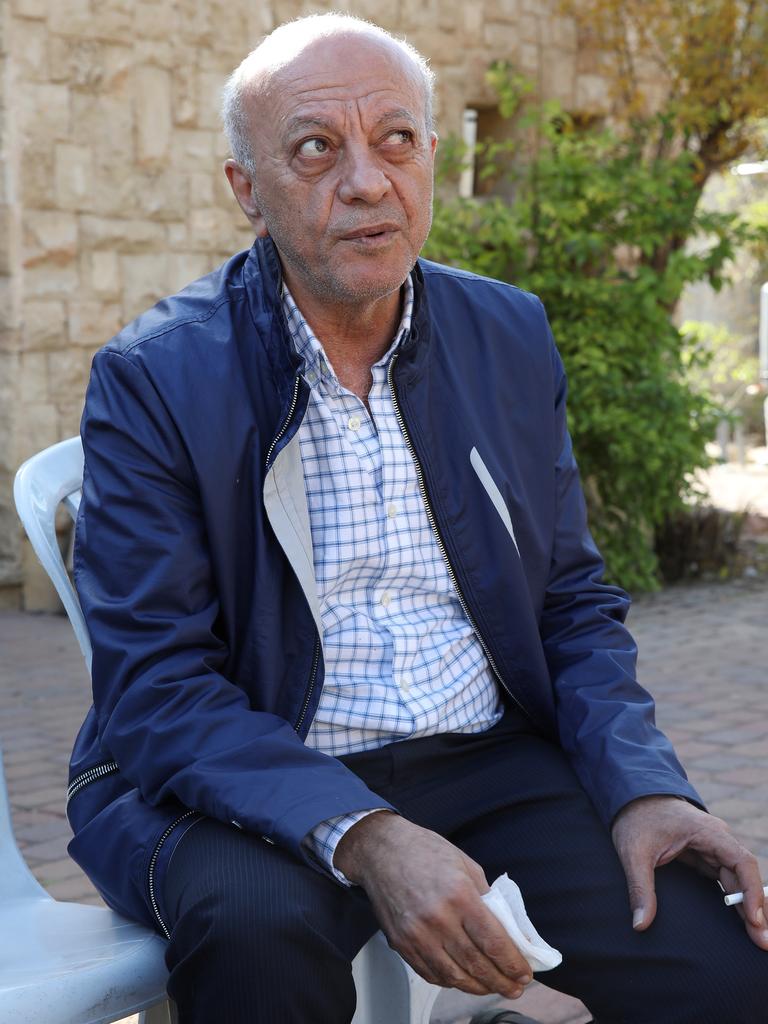
“The girls were the best friends, they talk all the time, little secrets between themselves.’’
He smiles when he says his four girls decided to become vegetarians.
“It’s a serious problem for my wife, because she loves meat,’’ he says.
“When we would go to China my wife and I would always eat meat but the girls wouldn’t. We had to find something for them to eat — only vegetarian.”
Uncle Abed remembers Aiia and her sisters influencing their dozens of girl cousins, who also stopped eating meat.
“The (Maasarwe) girls all love animals. When they would come to us in Ramadan we always have to plan a dish without meat.
“They influenced all the rest of the girls in the family. Most of them don’t eat meat.
“She (Aiia) tell me, ‘why do you eat cow? With what privilege?’’’
Abed cracked a dad joke to get Aiia off his back about the meat.
“I told her the schnitzel, it’s not chicken, it’s from the supermarket.’’
He remembers Aiia always had a book in her bag, and was always reading. She also loved to listen to music.
“She heard a lot of international music. One time I came in and I hear her listening to music in Chinese. I laughed and started dancing.’’
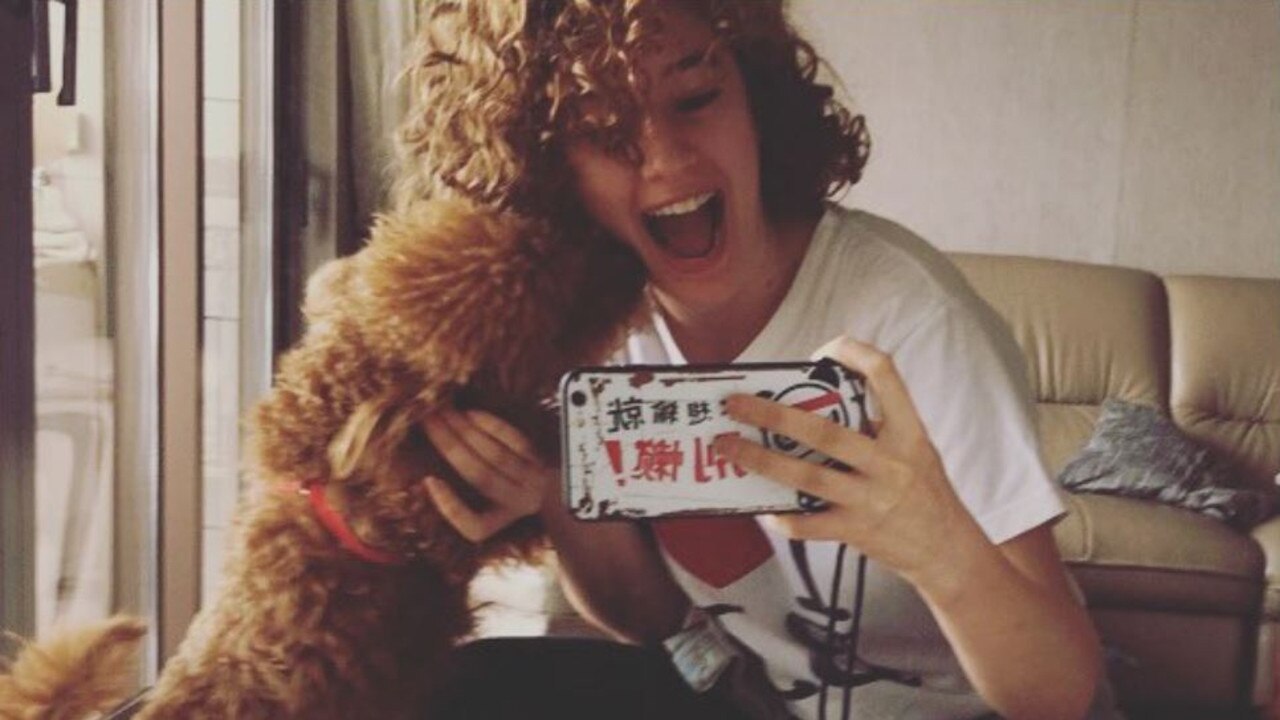
INTERNATIONAL LIFESTYLE
A few years ago, the family moved to China and lived with their dad for a year, honing their Chinese language skills with a live-in tutor.
They came back to their village and finished high school in Baqa al-Gharibyye, then the two older ones, first Noor and then Aiia, went back to China to continue their studies there at university, about two years ago.
They studied in Shanghai and lived together there, while their dad split his time between Shanghai and his office down south.
Saeed was given a dog by one of his Chinese staff, and when the dog died, Aiia and Noor were so upset, they persuaded their father to immediately buy another one, the same colour and size.
RELATED: Mourners gather for tragic student’s funeral
MORE: Police rule out Aiia stalked theory
DELVE DEEPER: Aiia killing too close to home
“In our culture it is forbidden to feed a dog at home,’’ he says.
Nonetheless, the girls prevailed, and the new dog, Simba, became a fixture in the Maasarwe house, even sleeping on Aiia’s bed.
“On the phone she would not ask about me, but the dog,’’ Saeed says.
As she got older, Aiia loved to travel and her father encouraged her to see the world and its sights.
When she moved to Melbourne five months ago to study English, he urged her to travel the country.
“I said ‘go, go around Australia see everything, go to Sydney’, but she said ‘no Baba, I will wait for you’.’’
They never got to take that trip together.
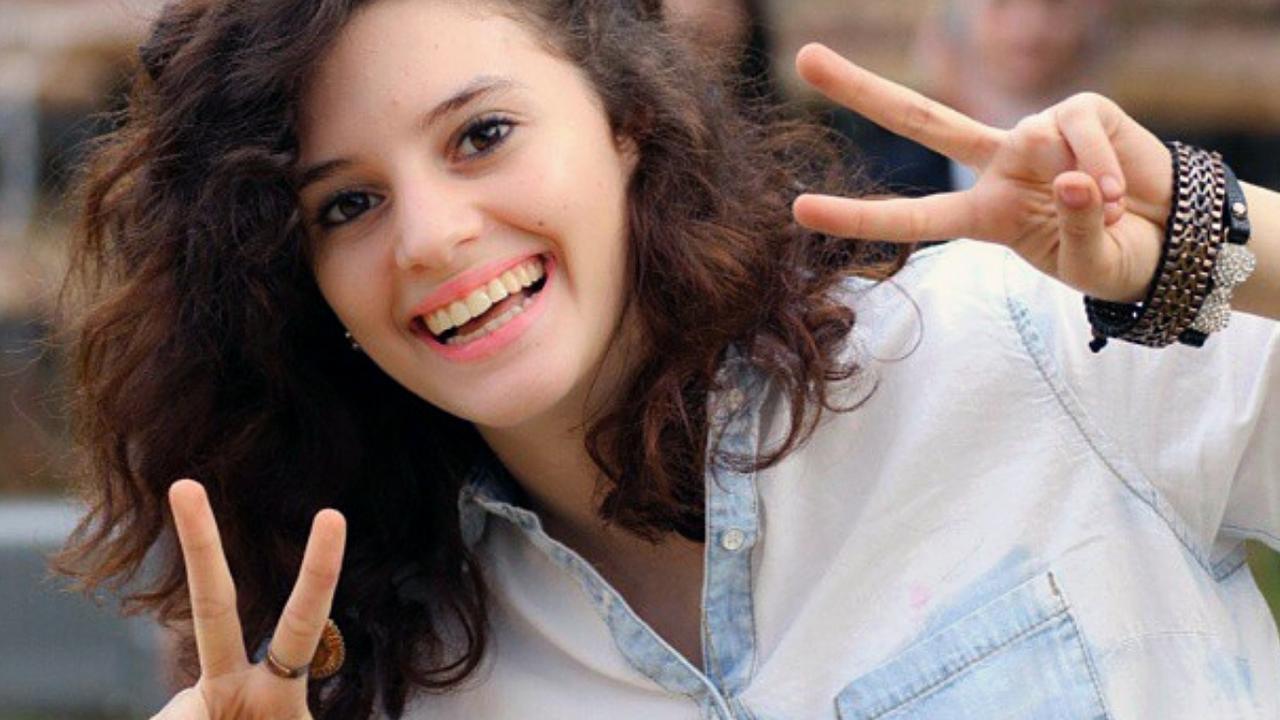
STUDIOUS CHARACTER
Aiia was highly-disciplined and an excellent student who set exacting standards for herself.
On the day she was killed, she spoke to her father about exam results. “All the time she was special and clever, even in primary school. She liked a challenge. She wanted to be the best,’’ Saeed says.
“Even the day this happened, she did some exams. In one she got 92 (per cent) and one she got 93 so she said ‘Baba, that score will be 92.5 per cent’.’’
Aiia told her dad she was not satisfied with that score.
On a very difficult exam in China, she scored 77 per cent. The teacher told her it was the best result in four years, but Saeed said Aiia was “very, very sad” with the result.
Saeed and her uncles remember Aiia always helped her mother and her family with household chores, and obeyed the rules. She was always humble.
Saeed subtly tried to encourage her to pursue a career in computing so she could help him with his import/export website. While she never said no, she stayed focused on her language studies, and hoped to move onto Latin once she had perfected her English.
The village of Baqa al-Gharibyye and the Maasarwe family are determined that Aiia’s death should be a catalyst for change, and that the world must hear the message that violence against women will not be tolerated.
They do not want to speak or even acknowledge the man charged with her rape and murder.
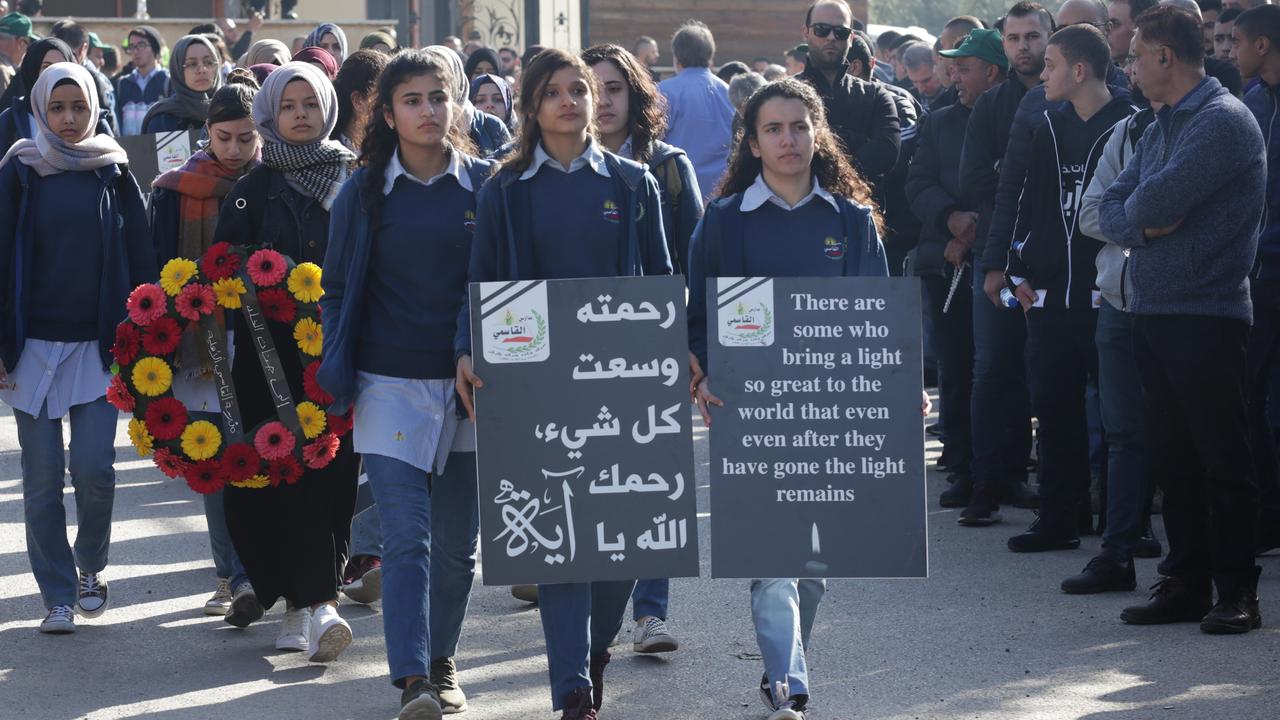
GIVING AIIA A VOICE
Another uncle, Jamil Masarwe, who lives in New York, is contemplating a charitable foundation, called something like “Aiia for Women,’’ or a similar name that speaks to all the women in the world.
He wants to thank the people of Australia for their support and kindness in the wake of her death.
“There is big white sea and one small black dot. The black dot should be pulled out by the roots but it doesn’t not taint the white sea,’’ he says.
Saeed said he had wanted Aiia and his other girls to see the world and have every opportunity in life.
He is unsure if the labels “progressive’’ or “liberal’’ fits for how he tried to raise his family.
“We live in this world trying to give them (the girls) life at a high level. To look into other people’s eyes not from above and not from underneath.
“To respect the other, even if the other is different with its customs or its behaviour — everyone should live how they see right.
“I tried to give them everything I could. To experience other cultures and different nationalities. To see life as colourful.’’
He comes looking for News Corp after his daughter’s funeral on Wednesday, and says there are things he wants people to know.
He has flown overnight from Melbourne via Bangkok to bring his daughter’s body home and his eyes are red, his jaw unshaven. He is smoking cigarettes, and drinking strong Arabic coffee, and he is broken, and grieving, and incredibly gracious and brave.
“I want to tell you something,’’ he says.
“I am surprised from where I get the power to talk to you about this but I believe it is from God. It is not my voice. It is Aiia’s voice, the voice of Aiia.
“I think God gave us a present, to be with Aiia for 21 years.
“I think God sent me the message to speak on Aiia’s behalf. Aiia can’t speak, so I will.’’
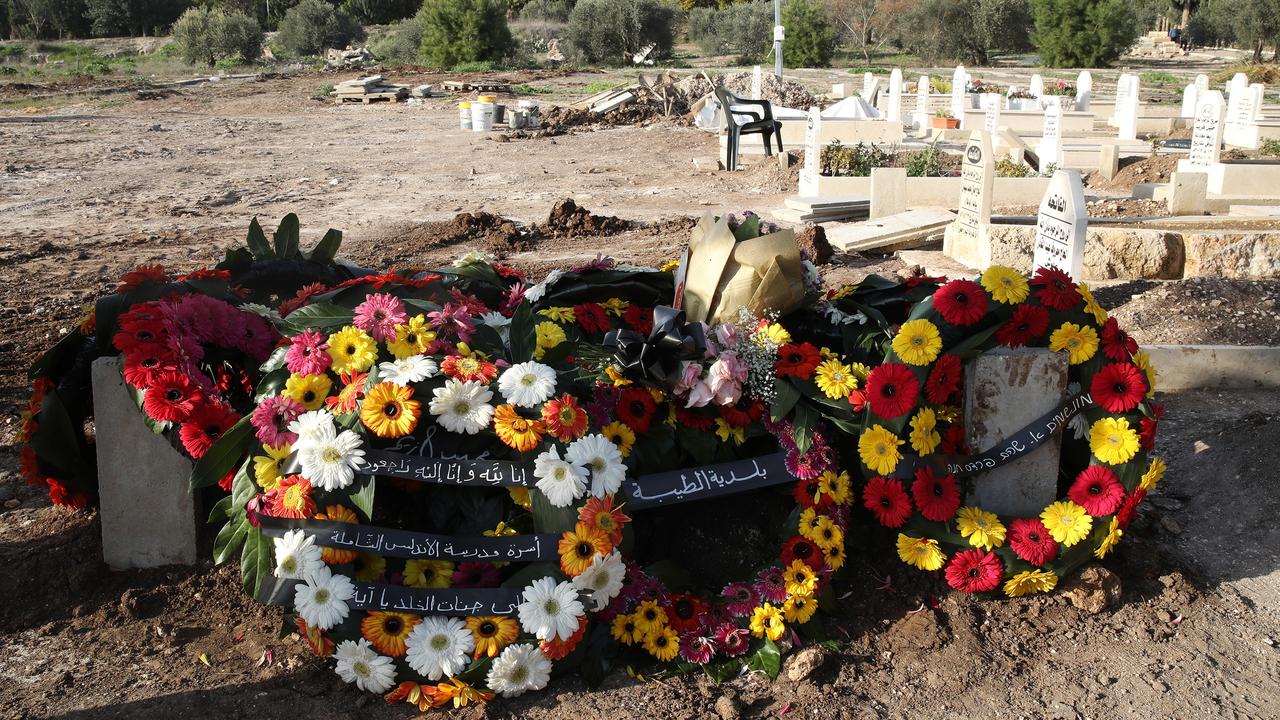


Add your comment to this story
To join the conversation, please log in. Don't have an account? Register
Join the conversation, you are commenting as Logout
$500,000 offer: Mushroom murder spurs media frenzy
The estranged husband of triple murderer Erin Patterson has been inundated with lucrative media offers.
‘I miss being able to talk to them’: Tribute for slain Aussie brothers
A tribute has been unveiled where Australian brothers Jake and Callum Robinson and their American friend were murdered during a surf trip.